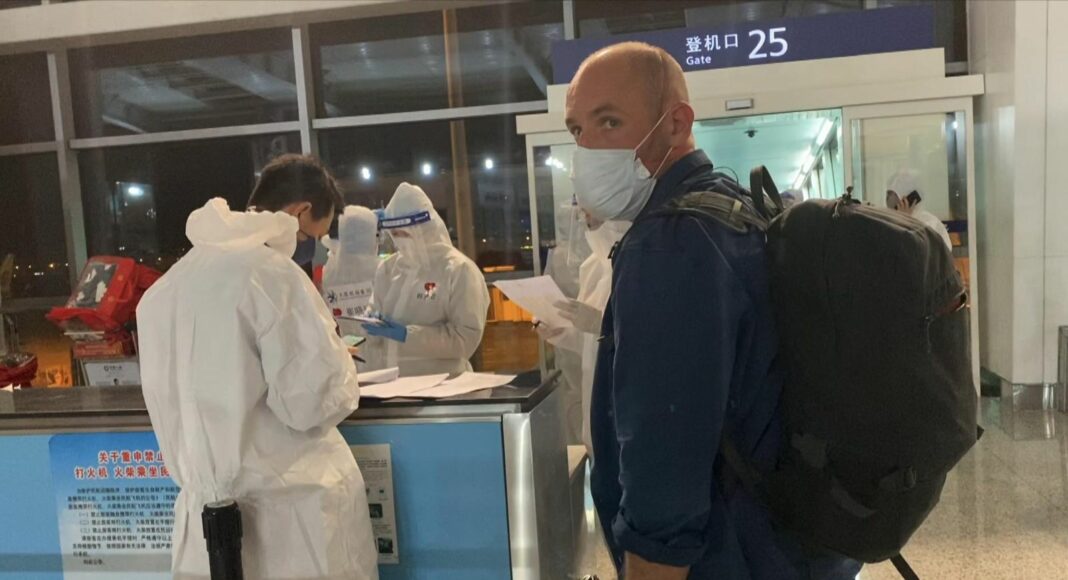I was part of a Sky News team on the ground in Wuhan when the world’s first COVID-19 lockdown was announced, in January 2020.
It was so new that we were debating how to describe it – “shutdown” and “quarantine” were the other options. We certainly had no idea that we’d be living under some form of it for the best part of the next three years.
In the first stages of the pandemic, it worked. Much of China escaped the restrictive and repeated lockdowns the UK experienced.
But the arrival of the delta and then omicron variants turned an emergency measure into a numbing daily grind.
China protests latest: ‘Utterly extraordinary’ scenes
Image:
Tom Cheshire was in enforced quarantine for two weeks in a single hotel room in Dalian, northeast China, at the start of 2021
PCR testing became ubiquitous: every day I would queue up to have my throat swabbed.
Entry to any public space required showing a green health code on your telephone, which is based on your location history and PCR test status.
Travel within the country constantly fell through – if the place you wanted to visit had any COVID cases, it meant quarantine on return to Beijing. Or, if Beijing had any cases, cities would refuse entry.
Read more:Analysis: Why this is a major challenge to ruling Communist PartyHow China’s zero COVID policy is turning cities into digitised fortressesBeijing ‘effectively under lockdown’Lockdown frustration grows in China’s epicentre
And that was when it was working more or less well.
When cases rose, brutal lockdowns would be imposed, as we saw in Shanghai and many other cities this year. Even the lighter version, the shadow lockdown, meant restaurants, parks, cinemas and schools shutting, as has happened in Beijing throughout the year.
Image:
COVID-19 testing was increased again in Beijing at the start of this summer to counter a growing outbreak
The appearance of a person in a white hazmat suit was the worst omen. It meant a residential compound or office building was about to be locked down – we would flee and stay at a friend’s house or hotel if we spotted one.
But other times you didn’t get the physical warning: instead, your phone’s health code would turn orange, perhaps because you had crossed paths with a suspected COVID-19 case – that meant home quarantine at best or being carted off to a makeshift hospital at worst.
In short, it was a pretty miserable existence.
China calls its battle against COVID a “people’s war”. But the people are fed up.




